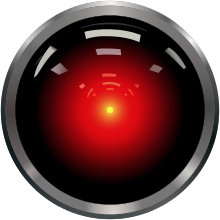- Course number
- CIS 700 - Commonsense Reasoning
- Instructor
- Dan Roth
- Website
- seas.upenn.edu/~cis700dr/Spring19
- Discussion Forum
- Piazza
- Time and place
- Spring 2019, Mondays and Wednesdays 1:30-3pm (Towne 309)
- Course Description
- Humans engage in reasoning – we have a store of commonsense knowledge that we can quickly access and reason with, to make sense of new situations and make inferences about the world around us. Automating natural language understanding requires models that are informed by commonsense knowledge and the ability to reason with it in both common and unexpected situations. The success of statistical and deep learning methods has supported significant advances in some aspects of AI, especially those that depend on learning standalone models from large amounts of annotated data. But our models still do not know that “get me a piece of cake” requires first getting utensils, then cutting the cake, and placing it on a plate, and that it typically takes just minutes (as opposed to “baking a cake”); and they don’t know that NYC is always on the East Coast, while Paul Simon is sometimes there.
The goal of this class was to understand the literature – old and new – on commonsense: knowledge acquisition, representation and reasoning – especially in the context of natural language understanding.
You will read, present and discuss papers, and work on two projects. A small one in the first third of the semester, and a large and open ended one in the rest of the semester.
- Prerequisites
- Machine Learning class; CIS 419/519/520 or equivalent. NLP: Knowledge of NLP (equivalent to a basic Computational Linguistics/NLP class) is mandatory.
- Grading and Expectations
- There will be
- Course Projects (50%) - The first project will be an individual project, and will focus on reproducing a relevant result from the literature (more detailes will be given later). The second project will be done in teams of size 2; teams will proposed projects and consult us. The first project will occupy the first third of the semester or so and will be presented once it is done. The second will begin then with a brief project proposal, and will consume your time until the end of the semester. We will have a couple of milestones along the way, and results will be reported and presented at the end of each stage.
-
Reading assignments - Mandatory readings and additional recommended readings will be assigned every week.
-
Critical Surveys (20%) - Four (4) times a semester you will write a short critical essay on one of the additional readings. In two of these you will be assigned as a discassant of a paper presentend by another student.
-
Presentations (20%) - You will present two papers from the additional readings (30 minutes, focusing on the mathematical/technical details of the paper). In some cases, the presentations will be prepared in groups, and a group of presentations will form a coherent tutorial. In all cases, following your presentation you will write a short summary of the paper and the discussion the followed (a template will be provided).
-
Class Participation ( 10% )
There is no final exam.
- Expectations
- This is an advanced course. I view my role as guiding you through the material and helping you in your first steps as a researcher. I expect that your participation in class, reading assignments, and presentations will reflect independence, mathematical rigor and critical thinking.
